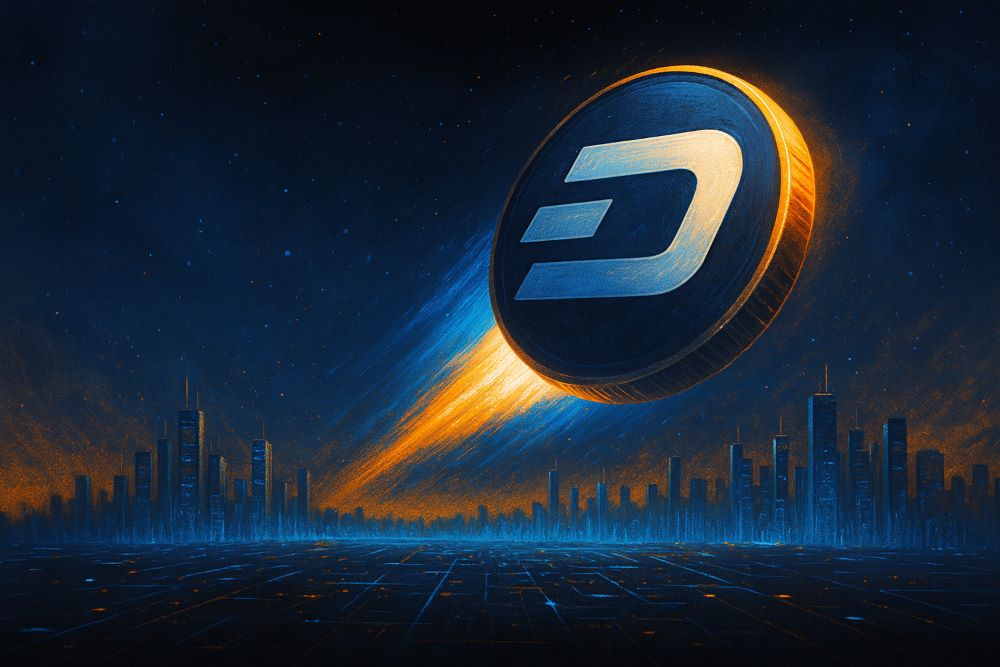Dash has become a hot topic again after its token price surged sharply, re-entering the top 100 global crypto assets.
After initially sinking amid market volatility, this legacy asset now seems to be rediscovering its former glory.
DASH attracting the attention of new and existing investors
This October, DashPay wallet usage recorded a monthly increase of around 15%, even after its delisting from Bit2Me in March 2025. Interestingly, many institutions have begun using Dash for cross-border transaction settlements.
Furthermore, partnerships with Maya Protocol and the social network InLeo have expanded its ecosystem, particularly in the DeFi sector. Meanwhile, its privacy features continue to draw scrutiny from regulators, who consider the need for a balance between confidentiality and compliance.
As of press time, DASH is changing hands at about $57.42. In the last 4 hours, the token has risen by around 6.7%, while in the last 24 hours it has increased by over 44%. Looking at the 7-day chart, the increase has reached 62%, and over the past 30 days it has grown by around 130%.
Daily trading volume reached $147 million with a market capitalization of around $718 million, enough to bring it back onto the radar of veteran traders who had previously forgotten about it.
Not only that, technical analyst Javon Marks views DASH’s current movement as opening a new chapter. He believes the token’s price has broken through a triangle pattern on the two-week chart, which is usually a major signal of a further rally.
According to Marks, if the pattern is confirmed, the price could surge up to 618% towards the $400 area.
Privacy asset sector also heats up
Dash’s rally is not isolated. Other well-known privacy-focused tokens, such as Zcash (ZEC) and Monero (XMR), are also on the rise.
In a single day, this sector rose by around 14%, as investors again sought assets that could provide financial privacy amid growing concerns about central bank oversight through CBDCs.
Amid intensifying geopolitical uncertainty, many market participants are seeking safe havens that are not entirely tied to the traditional financial system.

